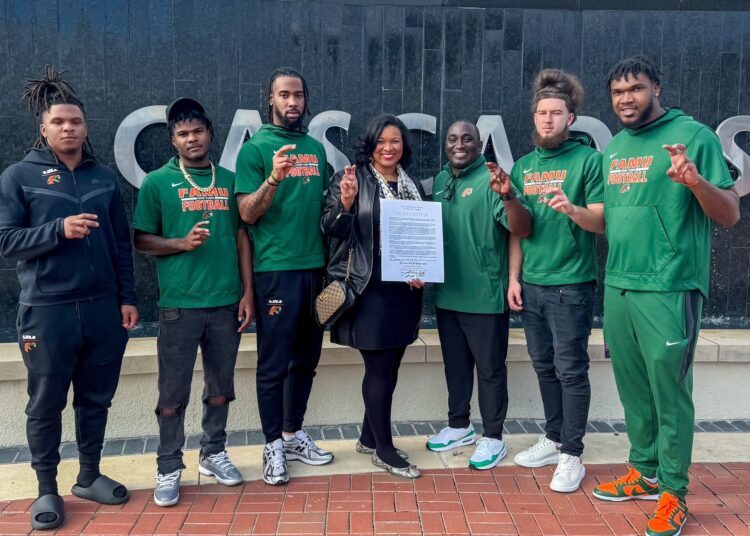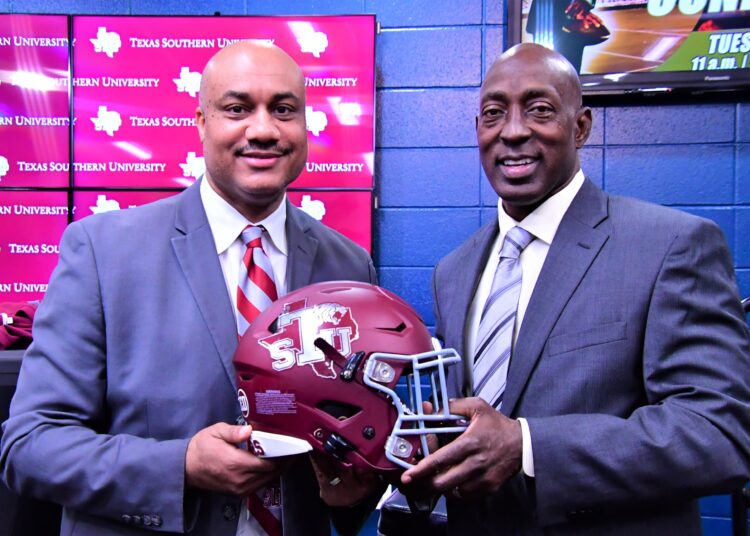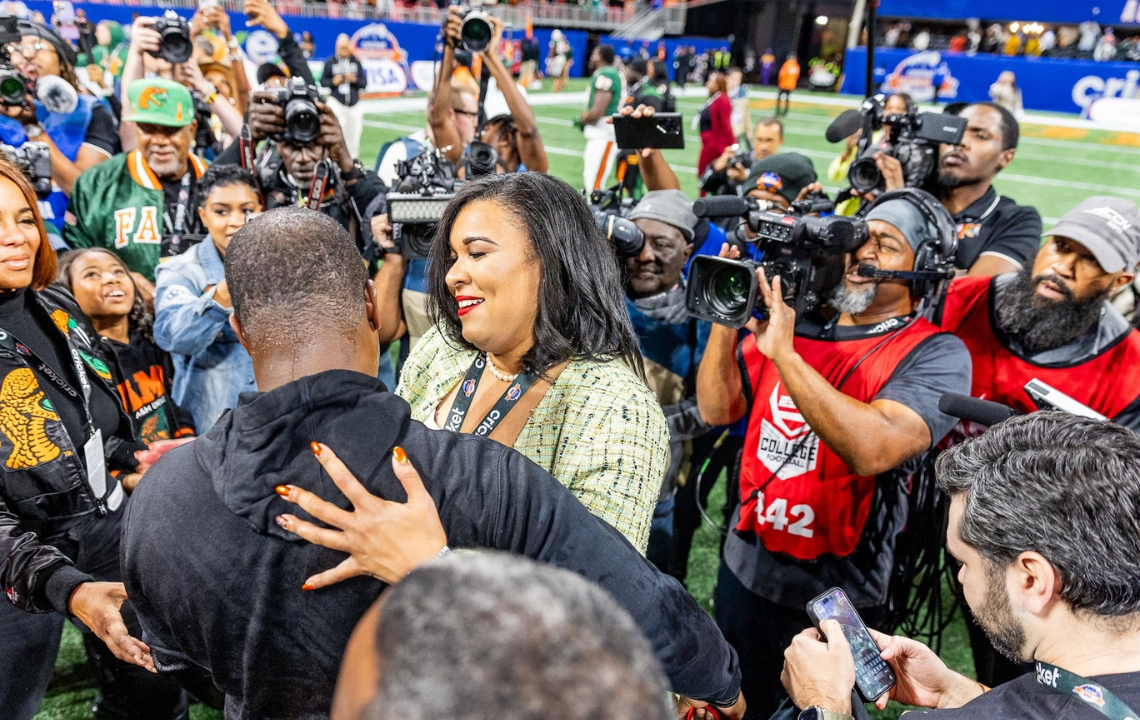So far, the winter of 2024 has been one of pop culture smoke everywhere you look.
From Katt Williams calling out joke thieves to women in rap passing out diss tracks like notes in class.
I never thought this would extend into head football coaching searches. Still, we have arrived at that very destination with the recent chain of events at Texas Southern and Florida A&M.
The HBCU sports community looked on with curiosity, confusion, and derision as Texas Southern’s board of regents effectively took the decision out of athletic director Kevin Granger’s hands, considering everyone from Andre Johnson to Rod Woodson to finally settling on Cris Dishman after Fred McNair was originally the heir apparent.
Those same feelings were expressed and amplified when Florida A&M’s stakeholders (columnist’s note: can we come up with another word, please?) raised all sorts of holy hell that forced athletic director Tiffani-Dawn Sykes to pivot from the original choice to replace Willie Simmons – now-entrenched Fort Valley State coach Shawn Gibbs – to remove the interim tag from James Colzie III.

While HBCU alumni, booster groups and fans have always had an opinion on sports, the recent shenanigans at Texas Southern and FAMU set a dangerous precedent regarding undermining the authority of people entrusted to make decisions of a college institution’s athletic program.
Admittedly, hearing from Rattler football player – and Celebration Bowl offensive MVP – Kelvin Dean Jr. helped me understand why the players were uniform in their request for Colzie to be the guy. But the way things played out on social media – rumors about relationships and votes of no-confidence – all reeks of too many cooks in the kitchen.
The delusion that fans, booster clubs, and alums members share in how an NCAA athletic department should conduct business runs deep. It makes you wonder if any athletic director or coach would be good enough for the people who are willing to hold a few dollars over their alleged beloved alma maters’ heads.
[lasso ref=”amzn-florida-am-university-famu-rattlers-stacked-t-shirt” id=”72607″ link_id=”15735″]
Learn.org’s description of an athletic director is “[an] administrator who supervises and oversees athletic programs at a college, high school or private institution. They are responsible for budgeting, promotion, and scheduling for sports teams.
An athletic director may coordinate with student academic departments, though they rarely work directly with athletes. Instead, they act as athletic managers, organizing transportation, supervising coaches, and indirectly guiding sports teams to success. They are charged with the task of hiring and firing coaches, as well as other athletic staffers in their organization.
The AD is in charge. One has to wonder if that matters to fanbases who clamor for celebrity or splash hires before resorting to personal attacks against the person trying to do the job.

As Bethune-Cookman athletic director and men’s hoops coach Reggie Theus told HBCU Sports senior editor Kendrick Marshall weeks ago, the hiring and firing decisions are the AD’s weight to bear alone. No one else faces any questions or second-guessing about bringing in a coach who might be a poor fit or letting go of a coach who shines elsewhere.
Playing armchair administrator is easy when you don’t have to make any decisions other than how much hell you’ll raise if you don’t get your way.
[lasso ref=”amzn-texas-southern-tigers-tsu-university-large-college-flag” id=”71812″ link_id=”15736″]
If Black College sports are to continue trending upward, then trusting in the people hired to oversee athletic programs and departments is a must. The more people you chase off, the more unstable these programs become, and you’re back to square one.
Maybe some people like starting over again every couple of years.









How is FAMU starting over by selecting Colzie? If J. Dean helped you understand why selecting Coach Colzie was important to the fabric of the team, why would you persist and continue to write this ill-informed article? The easy answer would be you’re doing it in the name of journalism. Right?